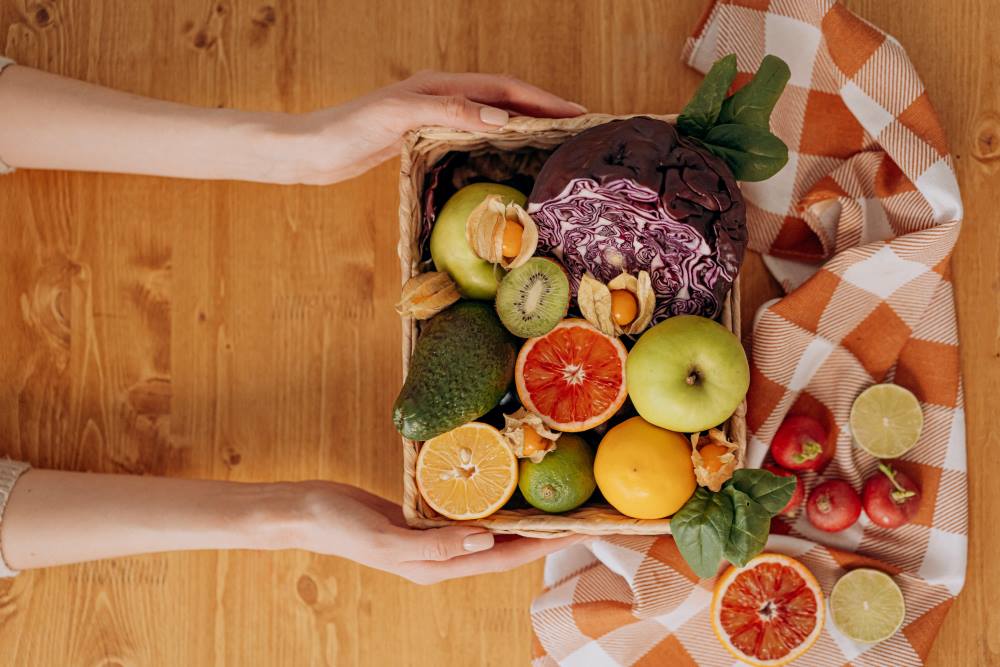
How Diet Affects Hair Loss: Understanding the Link between Nutrition and Hair Health
Share
Hair loss refers to the thinning or loss of hair on the scalp or other parts of the body. Proper nutrition is essential for healthy hair growth and maintenance.
This article aims to provide information on how nutrition affects hair health and offer tips for maintaining healthy hair.

Micronutrient deficiencies and hair loss
Iron deficiency anemia
- Symptoms of iron deficiency anemia include fatigue, weakness, and hair loss.
- Foods rich in iron include red meat, poultry, fish, beans, and leafy green vegetables. B. Vitamin D deficiency
- Vitamin D helps regulate calcium levels in the body and plays a role in hair growth.
- Symptoms of vitamin D deficiency include hair loss and thinning.
- Foods rich in vitamin D include fatty fish, fortified milk and cereals, and egg yolks. C. Zinc deficiency
- Zinc is essential for cell growth and repair, including hair growth.
- Symptoms of zinc deficiency include hair loss and thinning.
- Foods rich in zinc include oysters, beef, poultry, nuts, and beans. D. Other nutrients that may affect hair loss
- Biotin plays a role in hair growth and can be found in eggs, nuts, and whole grains.
- Vitamin A helps regulate cell growth and can be found in sweet potatoes, carrots, and spinach.
- Omega-3 fatty acids can improve hair density and can be found in fatty fish, flaxseed, and walnuts.
Calorie and protein restriction
Calorie and protein restriction can affect hair health by causing nutrient deficiencies:
- Hair follicles require certain micronutrients and macronutrients for optimal growth and maintenance.
- When calorie and protein intake is restricted, the body may not receive enough of these nutrients, leading to hair thinning and loss.
- Nutrient deficiencies commonly associated with hair loss include iron, vitamin D, zinc, biotin, and omega-3 fatty acids.
Maintaining a healthy diet while losing weight
- It is important to maintain a balanced diet that provides all necessary nutrients while also reducing calorie intake.
- Protein is particularly important for hair health, as hair is primarily made of a protein called keratin.
- Fruits and vegetables provide vitamins and minerals necessary for hair growth and maintenance, such as vitamin C, iron, and beta-carotene.
- Whole grains provide fiber and B vitamins, which are important for overall health and may also support hair growth.
Supplement use and hair loss
Popular supplements for hair health include biotin, vitamin D, and omega-3 fatty acids:
- Biotin is a B vitamin that is important for healthy hair, skin, and nails.
- Vitamin D is important for overall health and may also support hair growth.
- Omega-3 fatty acids have anti-inflammatory properties and may support hair health.
Risks and benefits of supplement use should be discussed with a healthcare provider before use:
- While supplements may be beneficial for some individuals, they can also have potential risks and interactions with other medications.
- It is important to discuss supplement use with a healthcare provider before starting any new supplement regimen.
Foods that may worsen hair loss
Simple carbohydrates can cause inflammation and hormonal changes that may contribute to hair loss:
- Foods high in simple carbohydrates, such as sugar and refined grains, can cause inflammation in the body.
- Inflammation can contribute to hormonal changes that may impact hair health.
Fish with high mercury content can damage hair follicles and contribute to hair loss:
- Fish with high mercury content, such as shark, swordfish, and king mackerel, can damage hair follicles.
- Hair follicle damage can contribute to hair thinning and loss.
Fried foods and red meat may contribute to inflammation and nutrient deficiencies:
- Fried foods and red meat are high in saturated fats, which can contribute to inflammation in the body.
- These foods may also be low in nutrients necessary for hair health, such as iron and vitamin D.
Foods that promote hair health and growth
A. Protein-rich foods, such as lean meats, eggs, and beans, provide the building blocks for healthy hair.
B. Foods rich in vitamins and minerals, such as leafy greens, berries, and nuts, support hair growth and maintenance.
C. Antioxidant-rich foods, such as blueberries and tomatoes, can protect hair follicles from damage.
D. Staying hydrated by drinking plenty of water is also important for healthy hair growth.
Other hair loss prevention tips
A. Maintain a healthy and balanced diet which includes All the Vitamins, Minerals, Carbs and Proteins.
B. Avoiding hair-damaging products, such as hot tools and harsh chemicals, can prevent hair breakage and damage.
C. Avoiding pulling hair, such as tight hairstyles or hair extensions, can prevent hair loss.
D. Quitting smoking can improve hair health by improving blood flow to the scalp.
